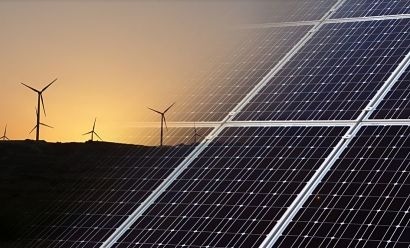
The the EU Power Purchase Agreement Index which represents a weighted average of all purchase prices across Europe, decreased by 15 percent following an ongoing decline in natural gas and electricity prices. Buyer demand in Europe continues to accelerate in the second quarter of 2023, despite ongoing challenges to the industry.
The number of projects marketed and deals signed in Q1 2023 trended higher than in 2022 and further increased this quarter, according to Altenex Energy’s Q2 Global Renewables Market Update. (Altenex does business in Europe as Altenex Energy and Alfa Energy, and in the US as Edison Energy).
In Europe, the market continues to stabilise after a year of political and price uncertainty, with the number of power purchase agreements increasing and more projects becoming available to corporate buyers. Corporate interest has continued to grow, with current pricing and risk more palatable to buyers.
European prices continue to fall this quarter across all markets, and buyers may benefit from a wide variety of options across offtake volumes, technologies, price structures, and tenors. Buyers are also getting closer to major corporate sustainability milestones in 2025 and 2030, which will further drive power purchasing activity.
The number of marketed offshore wind projects has increased in Northern and Western Europe. Developers are exploring offshore wind opportunities across various geographies in response to ambitious targets being set across Europe.
Amid recent criticism of the voluntary carbon market and of corporations using offsets to make carbon neutrality claims, market pricing for carbon offsets remained suppressed throughout Q2. Despite trading at record-low levels, developers remain optimistic due to expected growth in demand as 2025 and 2030 climate commitments inch closer. More organisations are favouring projects that demonstrate clearer additionality and that have third-party certified environmental and social co-benefits.
Sustainability claims - specifically at the product level - are also facing more scrutiny in Europe. In May, the European Parliament voted to support new rules to combat greenwashing and misleading product claims. This includes generic environmental claims on product labels declaring that a product is “environmentally friendly” or “carbon neutral.” The new regulation aims to crack down on practices that mislead consumers about the actual sustainability of products. However, it does not ban carbon neutrality claims at the company level.
In addition to performing robust project-level due diligence, corporations can demonstrate integrity by pairing offset procurement with a credible decarbonisation roadmap. It is important to note that offsetting is not intended to be the sole mechanism in meeting climate commitments, but rather one tool in the larger decarbonization toolbox that follows the mitigation hierarchy: avoid, reduce, replace, and offset.
State credit guarantees could provide an avenue for buyers to access power purchase agreements, as credit remains a significant hurdle for potential buyer participation in the market. European policymakers place great importance on power purchase agreements in achieving continent-wide renewable energy and climate goals, yet low creditworthiness or a lack of credit can disqualify many potential buyers from entering the market. The European Commission proposed that member states issue instruments to reduce financial risks associated with buyer payment default, such as guarantee schemes at market price. The state therefore takes on some of the risks associated with the buyer. This may also serve to kickstart the market in geographies with low or no power purchase agreement activity.
The Q2 report also includes a special market spotlight on Southeast Europe, including countries such as Bulgaria, Croatia, Greece, Hungary, Romania and Serbia. Demand for corporate power purchase agreements in Southeast Europe is growing, with markets in the region poised to close the gap with more established power markets in the European footprint. The region presents massive renewable energy potential due to its strong resources; however, the region faces several challenges around project development, similar to those in other parts of Europe, and region-specific challenges remain.
For additional information:

